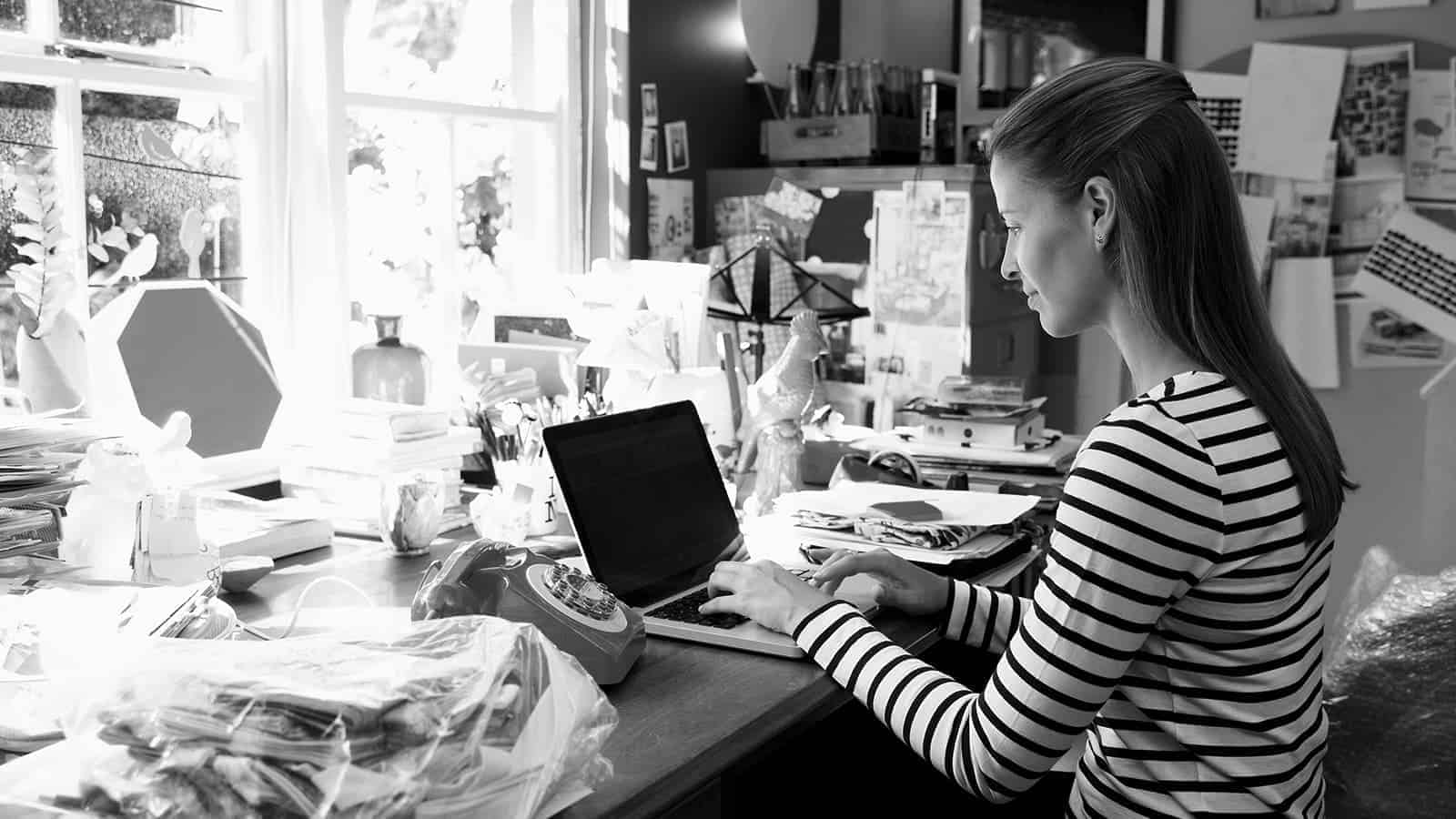(Editor’s Note: This article has been edited to eliminate any information that was not supported by, and linked to valid research)
People are often ridiculed for being messy. They’re called lazy, unproductive, and often unintelligent. But the truth is that these assumptions are far from accurate!
The truth is that messiness might not be such a bad thing. It can actually be a sign of intelligence and efficiency for many. One study reveals that messiness does not influence intelligence, one way of the othe. So for those who thrive in this environment, living or working in organized chaos is a positive thing!
Don’t believe us yet? Don’t fret, as there’s plenty of science that backs this up. Here is how researchers reveal that messy people are actually productive geniuses.
Here Are 6 Reasons Why Messy People Might Really Be Productive Geniuses
1. Why is neatness so valued?
To understand why people believe that organization is necessary for intelligence, let’s dive into why this is such a norm. As a child, you were likely raised to believe that keeping your room clean constantly was crucial to being considered “good.”
Most of us grew up believing that even the slightest amount of clutter is shameful. It makes us feel bad or like we don’t have our lives together. But where has this expectation come from?
- The truth is that the human brain is so complex that researchers still don’t know precisely how it works.
- In fact, being too obsessed with an orderly lifestyle can result in Obsessive-Compulsive Disorder.
- Plus, no matter how hard you work to keep a space organized, you know it will get messy again soon.
Many workspaces around the world have leaders who insist on constant neatness. But studies have shown that when staff members are allowed to be at least slightly messy people, they are able to get up to 30% more tasks completed than in completely clean and clear environments.
Of course, this doesn’t mean that you can be a complete slob, live in poor hygiene, or never clean up after yourself. It doesn’t mean you can’t use a table, or a diary, or have an organized shelf. What it does mean is that there is a balance to be struck, and in the spectrum of that balance, there is nothing wrong with being a little messier than society wants you to be.
2. Mess can inspire creativity and boost inspiration
Supposedly, having a desk or work table that is a little scattered about is great for promoting higher levels of creativity and innovation in problem-solving.
According to a study conducted in 2013 by Kathleen Vohs, who hails from the Carlson School of Management at the University of Minnesota, messy work spaces can greatly increase positive innovative thought. Meanwhile, very tidy spaces tend to result in conventional thought and have a tendency to encourage workers to play it safe and stick to the status quo.
Although it sounds a little poetic and farfetched, this means that being messy may be an outright manifestation of one’s ability to go against conventional norms and dare to be different. This is probably why so many unique thinkers were more than a little untidy. They dared to go against the grain, were spontaneous, and had braver ideas.
There’s also some additional information to be gained from this point. Those who are messy tend to have their most important work in more accessible places. Less important tasks, on the other hand, are buried beneath clutter. This can promote better productivity and less procrastination.
3. Messy people are more focused
For some, a messy environment is an immediate turn-off. It can reduce their positive thinking and bring down their ability to concentrate. It can stress them out and cause their efficiency to take a dive.
But those who live and thrive in a disorganized environment are capable of tuning out all that chaos. The mess around them is little more than white noise. This means that, in general, these supposedly messy people are able to maintain more focus through more intense distractions.
- Basically, these individuals have a higher threshold of tolerance for distraction.
- If this sounds confusing, think about it like you would those who have a higher tolerance for pain.
- Someone who can’t stand clutter will become more stressed out more easily, while those who barely notice clutter will be able to do more before needing a break or getting burned out.
However, not all of them benefit directly from their messiness. Research shows that when assigned with complex tasks or puzzles, those in messy spaces gave up on problem-solving sooner than participants in an orderly room.
4. Messy people have their eyes on the big picture
Seeing minute details is an important part of many tasks. But being able to see the bigger picture is what enables a person to create amazing new ideas and find fitting solutions to obscure problems. This skill can allow people to make faster decisions that benefit a project as a whole instead of obsessing over minor points that won’t matter in the long run.
When someone is messy, they have to be good at seeing the big picture to thrive. If not, they will fall victim to losing items, becoming stressed out at clutter, and concerning themselves with perfection. When you’re not aiming for perfection, you have more of a chance to take a look at the big picture.
- This also means that untidy individuals may adapt better to new situations.
- Instead of dwelling on the little things, they often leap right in and make quick judgments for the best action based on the large view they see.
- Given how change is such a constant part of the world we live in, this flexibility could be an undeniably useful skill!
5. Messy people don’t stop to clear up
Entropy is a “law of the universe” of sorts. Essentially, it means that the world is constantly shifting from organized to disorganized. There is no point at which the organization becomes permanent – chaos is always sure to follow. In fact, Adam Frank, a physicist, states that disorder is just the universe’s most natural state, so messy people have the right idea.
This means that no matter how many times you clear up a work area, it will only get messy again. While general light cleaning is important for cleanliness and hygiene, going to the extreme in neatness can upset the methods of messy people.
In fact, taking the time to clean up a work area can drain hours of valuable time away. This time could have been better spent working or chugging along on more important tasks. Messy people aren’t going to stop to give their room or office a full clean before settling down to work. They’re just going to jump straight to their necessary tasks.
On top of that, Harvard Business Review states that cleaning and tidying can be a form of procrastination. Many people fall into the trap of saying they’ll do their work right after organizing their papers, or when they’re done rearranging the items on their desk. And since disorder always comes after order, it won’t be long before this procrastination starts up again.
However, that same Harvard Study also points out that excess clutter can cause some people to feel anxiety and excess stress.
6. Disorganized spaces sometimes mean a disorganized mind
A disorganized mind may sound like a bad thing, but in this case, it definitely isn’t. In fact, a so-called non-organized mind can be indicative of intelligence, or, at the very least, a higher chance of building on existing smarts. Here are all the ways this works.
· They process things creatively
Individuals with disorganized minds do not think in straightforward manners. Their thought processes don’t go in straight lines. They frequently think with the right side of their brains, which is the center for creative thought.
Due to this, disorganized minds often have more unique ideas and think outside of the box. This leads to more innovation, better ideas, and thoughts that few others have had before. They form quick links between seemingly unrelated things and can see patterns easily. It’s how great inventions and discoveries are made!
· They have more interests and always want to learn
Someone with a disorganized brain isn’t content with just doing one thing. They constantly want to pick up new skills in order to satisfy their brain’s desires. This means they’re always learning and developing new interests.
The result of this is that a messy person with a disorganized mind is more likely to have a lot of knowledge in many different areas. People look down on jacks of all trades, but this makes them more versatile and allows them to exercise their minds regularly.
· They need to be occupied with things they genuinely like.
If you have a disorganized mind, you aren’t going to stick around doing tasks you don’t like. Admittedly, this doesn’t seem like such a great deal on the surface.
But what this means is that people with disorganized brains will only work in fields they love and will only pursue their interests. Typically, when someone really likes something, they do much better at it. As such, disorganized individuals are more likely to stick to what they enjoy and see better success in their fields.
Final Thoughts On Why Researchers Think Messy People Are Actually Productive Geniuses
Being messy isn’t a sign of poor intelligence. Conversely, it’s not proof of a disorganized lack of productivity. And it certainly isn’t something that anyone can judge your entire life based on.
At the end of the day, if messiness works for you, there’s nothing wrong with living chaotically in some ways. If being in the midst of untidiness stresses you out, clean up. If it doesn’t bother you and feels fine, keep going!
You don’t need to have a super neat space to be intelligent, to have positive thinking, or to prove your efficiency. It all boils down to whatever method works best for you!


















